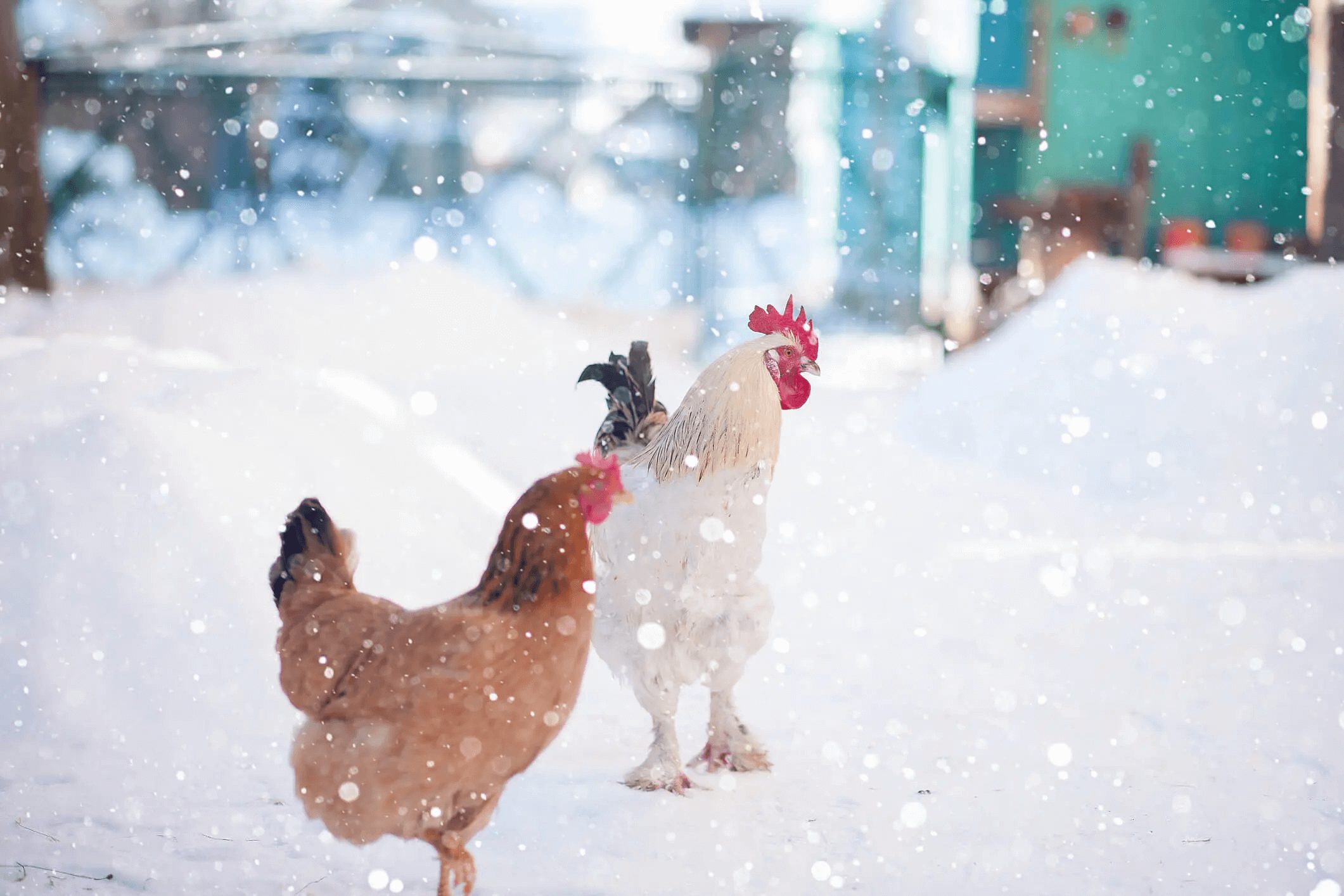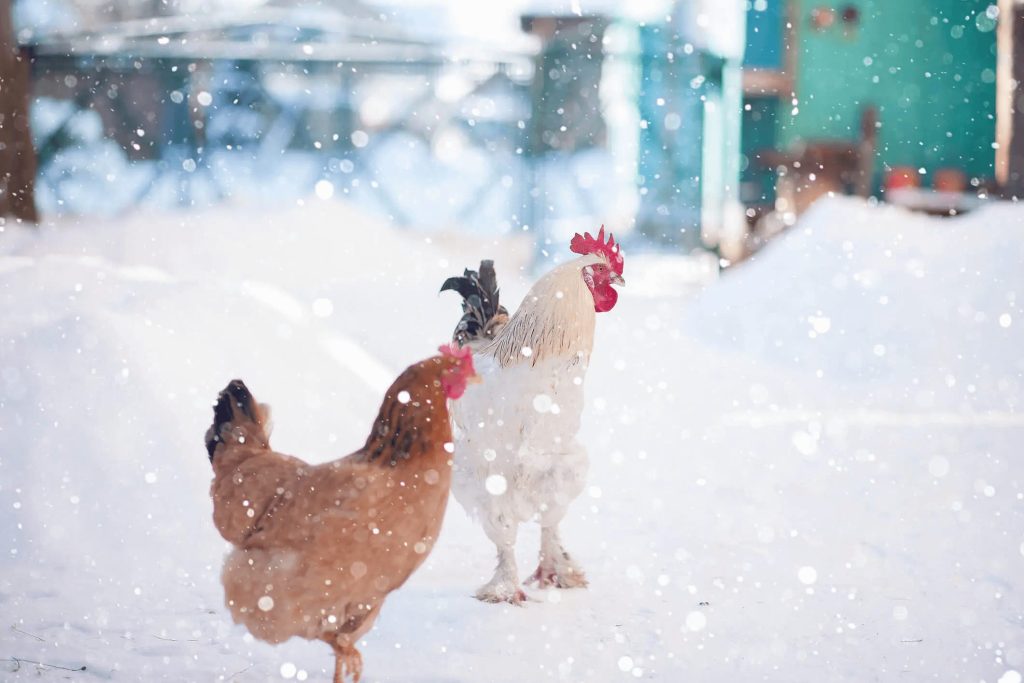

Exactly how to increase hen in wintertime? Hens are sturdy little buggers as well as do quite possibly in cold climates! Honestly, overheating normally presents a much more prompt danger to a chicken’s life than winter. After all, chicks are essentially walking as well as quacking mini feather boas! While they might not like the cool, chickens can quickly endure also when it’s a dozen degrees below zero outside, especially if they have a comfortable coop for the wintertime.
Nonetheless, if you want exactly how to increase chicken in wintertime, e.g. how to elevate hen griddles in wintertime, as well as how to elevate laying chickens in winter months, e.g. where do individuals increase hens in winter months? What temperature level is too cool for hens? Do chickens need a coop in the winter season? Can chickens make it through the winter without heat? While you may be concerned regarding your hens obtaining chilly in the winter, there are many actions you can take to maintain them comfortable.
Here are some suggestions on how to increase hens for eggs as well as meat to maintain your hens delighted and healthy throughout the chilliest months, including exactly how to keep hen chicken warm in winter months, means to maintain the coop dry and also draft-free, and also what to feed them. Read on to learn more concerning exactly how to raise hens in your yard in winter.
There are lots of points you can do to maintain your group cozy, healthy and balanced and also pleased in cold weather. These consist of winterizing the coop with additional insulation, developing a safeguarded exterior area for them to delight in, keeping an eye out for frostbite, and also giving food and water in somewhat various methods.


By boosting body weight when increasing chickens in wintertime you can boost specific energy storage and thus boost the capacity of the group to stand up to cool stress. It is verified that making use of green weight gain and weight gain dietary additives can swiftly boost the body weight of broiler chickens as well as increase the warm build-up each location of the group. It is preferable for winter months application.
Provide sufficient energy to enable hens in the north to withstand the cold. Enhancing the use of power feeds, such as corn, in the typical feed can greatly enhance the chickens’ resistance to chilly from a nutritional point of view, thus enhancing their capacity to lay eggs in winter.
When increasing hens in winter, the temperature demands in the chicken coop identify the egg-laying ability of the flock and relate to the success or failure of chicken farming. This is the most essential factor in just how to increase chicken in winter season, for this reason, in wintertime the chicken cage is especially essential to prevent chilly. Typically talking, the temperature level of the chicken coop ought to be maintained 35 ℃ -28 ℃ for chicks and 27 ℃ -22 ℃ for dog breeders; the temperature level of the chicken coop for adult hens need to be kept at 21 ℃ -18 ℃.
In winter, the temperature outside the chicken coop is mostly -30 to 40 degrees, which calls for the use of heating facilities inside the cage to attain the needed coop temperature. The primary heating facilities are cooktops, heating systems, geothermal heaters, hot air heaters, a/c, etc.
At the same time, the outside walls of the hen coop must also be insulated. As an example, double home windows, order plastic sheets, include a layer of cold-proof layer on the roof covering, use benzene board as insulation layer on the outside wall surface, as well as plastic canopy to cover the entire chicken cage, simply leave the entrance to and from the coop.
Throughout the feeding procedure, specific chickens also remain to give off warmth as a result of their high metabolism. The warm discharged in between chickens is beneficial in winter months, and also boosting the equipping density each location of chickens will certainly enhance the accumulation of warm each location when the cage requires to be heated to preserve the required temperature.
The confinement of the hen cage likewise hinders the reduction of moisture in the coop. The boost in loved one moisture is the adversary of raising hens in winter, while the rise in relative moisture will progressively build up hazardous gases such as ammonia in the chicken cage. When the focus of unsafe gases surpasses the standard, it will create different levels of injury to chickens.
Consequently, timely dehumidification and ammonia elimination is of fantastic relevance. The major techniques are: fairly small amount of water for hens, raise the temperature of the hen cage, boost air flow, add drugs to minimize ammonia as well as deodorise, and so on
Ventilation is an essential means of how to increase hen in winter, in order to keep chickens cozy in the winter season, the cage needs to be shut. This triggers insulation, however also prevents the elimination of hazardous gases. As a result, it is essential to keep warm while supplying correct and reliable ventilation to attain a fresh and also natural microclimate in the cage.
There are various methods to aerate, the usual ones are opening skylights, utilizing high flow fans, upright ventilation strategies, and so on. One point to note is that ventilation must achieve a reliable air flow price, otherwise, even if you are ventilating daily, you will certainly not attain your objective.
Coal home heating is a must-do everyday routine for a lot of chicken farm households when raising chickens in wintertime. This is a typical method of how to increase hen in winter without electrical energy, whether it is cooktop heating or hot air heater home heating, there are certain needs for burning coal.
In backwoods, the economic problems, heating is generally to the home heater home heating. This not just needs a high calorific worth of coal, but also to lessen the pollution of the hen coop by coal dirt.
avoiding condition is one of the most vital tips of just how to raise chicken in winter, illness are unavoidable in the process of increasing hens in winter season, so it is especially vital to do a great task of condition control, which is also the focus of winter season hen increasing.
In winter months, usual diseases in hens are carbon monoxide gas poisoning, ascites syndrome, as well as chronic respiratory system conditions. In order to protect against these illness, along with reinforcing air flow, medications must be contributed to the food routinely. preventing diseases is a vital point of just how to raise chicken in wintertime.
Scientific lights is really beneficial to hens. For laying hens, clinical and also affordable light intensity and time have an extremely noticeable result on improving egg manufacturing rate. Effectively expanding the illumination time for chickens can increase their feeding chances, gather physical energy and resist the adverse effects of low temperatures on hens.
While chickens are moving, cleansing manure, heating coal, and so on, there is basically soot. Residue is the terrific adversary of chickens growing in shut cages as well as typically creates breathing diseases in hens.
Dirt decrease actions are generally spray disinfection, ventilation, etc, specifically when adding coal and also digging ash in the furnace. Not only needs to the activity be light, yet additionally when cleansing the ash, it ought to be combined with water before it is tidied up. Minimize the event of soot when elevating hens in winter.
Introduction The production of organic fertilizers involves several stages, from raw material collection to final…
1. Introduction Organic fertilizer pelletizers are crucial equipment in the production of organic fertilizers. Their…
The production of fish feed pellets is a critical aspect of aquaculture, providing fish with…
In the rapidly expanding field of aquaculture, the quality and consistency of fish feed are…
Mesh belt dryers are widely used in various industries for drying materials such as food,…
Mesh belt dryers are essential for efficiently drying various materials, including food products, chemicals, and…